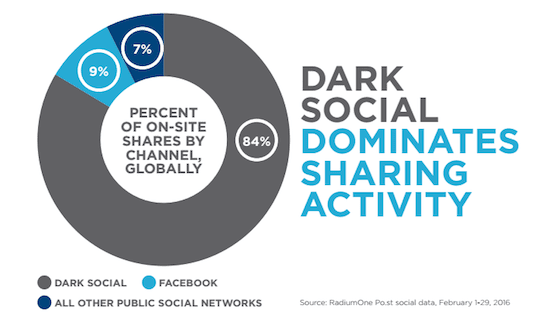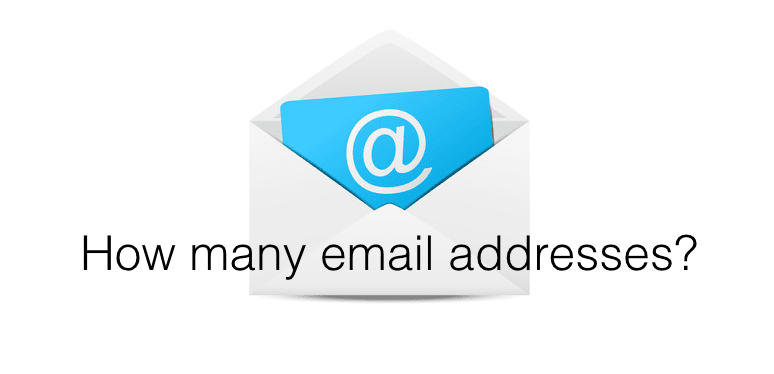Has this question ever even crossed your mind? It’s possible you have just one email account and have never thought twice about it. But, for most of us, we probably have several email addresses? In fact, on average, we all have 1.7 email addresses globally. Here is a list of different types of email addresses I have come across:
- personal email
- family email
- work email
- newsletter email
- pseudonym email (for online sign-ins only)
- alternative social media email (to sign in to a second account on Facebook, for example)
- garbage email (legitimate account but never consulted)
- fake email (not a real account you have signed up for — but quite possibly someone else’s)
- secret email (for the naughtier stuff)
- …
How many of these do you have? What other email address types have I missed out on?

The key point is, as a marketer, are we deserving of the personal email address from your (prospective) clients? Share on X Much like the personal nature of one’s cell number, more and more people are loathe to give out their personal email address. This study by Radicati (published in 2015) estimated that there were 4.6 billion email accounts worldwide in 2016, with on average 1.7 accounts per active email user. Whether business or personal, these accounts are estimated to send/receive 116 and 99 each day respectively. If Radicati continues to project increasing volumes of emails every day, it is my strong conviction that (a) the number of genuine interpersonal communications via email will decrease and (b) the effectiveness of email will continue to decrease over time. Even if emails are ‘cheap,’ it’s likely that the value of emails will decline inexorably, especially when you read about email marketing tactics with fish hooks involved.
It’s not surprising that the fish are swimming away. More and more people are learning to protect themselves, including the increasing use of dark social, so termed to mean the “social sharing of content that occurs outside of what can be measured by Web analytics programs.” [Techopedia] According to this 2016 study by RadiumOne, dark social represents 84% of all sharing activities. That sharing is tantamount to referrals that cannot be tracked or properly understood.

On the one hand, people are preferring the dark social media messaging platforms (Whatsapp, Facebook Messenger, WeChat, Snapchat…), especially among the younger swathes of the population. This is because of a number of factors, including convenience, trendiness, and the fact that they are “off the grid.” From the perspective of companies, on the other hand, brands are going to have become far more 'intelligent' in order to deserve a place in the inner sanctum Share on X whether it’s the personal email, mobile telephone number or within the hallowed dark social channels. Moreover, the email space is bound to become more complicated for brands because spammers are becoming foxier, upping their game to get through the spam filters. As the spam filter algorithms improve and adjust their spam detection, brand messages will increasingly fall prey to the same filter. Why? Because the brand marketing messages are too often inherently unsolicited, undesirable and impersonal Share on X
Stuff to ponder, no? What are you going to do differently in this context?











